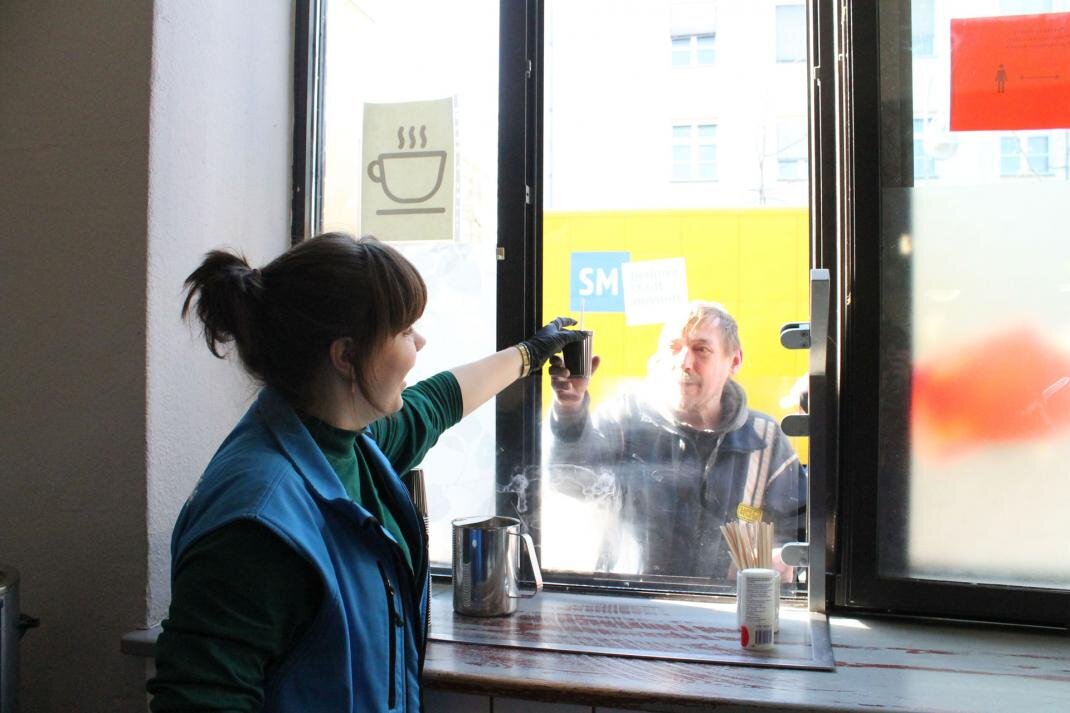The queues are getting longer outside the soup kitchen for homeless people behind the Berlin Zoo railway station. Since the coronavirus reached Germany, the center closed its doors and now staff and volunteers serve people through a window to the street. But the daily need for sandwiches and hot drinks is growing.
Hot drinks for the homeless: a Bahnhofsmission team members hands out hot drinks
Picture: Berlin Stadtmission/Breuer
“There are more people coming, they are in a worse state and need more help,” says Willi Nadolny, head of the center, known as the Bahnhofsmission Zoo.
People experiencing homelessness, wherever they are, are among the vulnerable groups most at risk in the coronavirus crisis. Many have underlying medical and mental health conditions and have nowhere to go to protect themselves or even just to wash their hands.
“How do you ‘stay at home’ when you are homeless?” Nadolny asks.
As a regular volunteer at Bahnhofsmission Zoo, I usually see it full of people getting lunch, picking up donated clothes, or talking with social workers. But now these services are reduced or shut, to protect not only the guests, but also the volunteers, many of whom are older people and therefore vulnerable to the virus.
Berlin has around 6,000 homeless people, and coronavirus is a double blow to many. The empty streets mean fewer opportunities to earn a little money by selling newspapers or making music. And homeless initiatives, like Bahnhofsmission Zoo, have cut back or closed.
The Berlin city government has emergency plans to accommodate 350 homeless people in a former youth hostel and elsewhere, including access to washing facilities and medical and psychological advice. But this is not enough to meet everyone’s needs.
Elsewhere in Europe, the lockdowns to limit the virus have raised concerns over police handling of homeless people. Restrictions on going outside, which took effect in Germany this week, have to take into account the needs of such vulnerable groups.
Yet people are pulling together to help. Near my home two “donation fences” have opened this week, where locals hang bags of basic supplies that can be picked up by homeless people. “Despite all the problems, there are new kinds of solidarity emerging, which is great,” concludes Nadolny.
